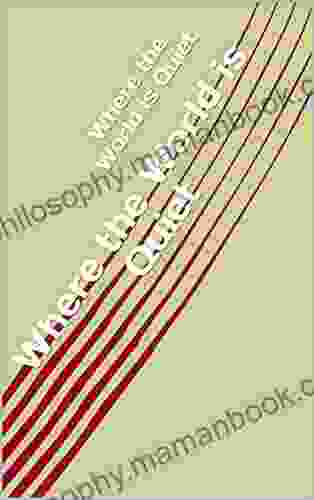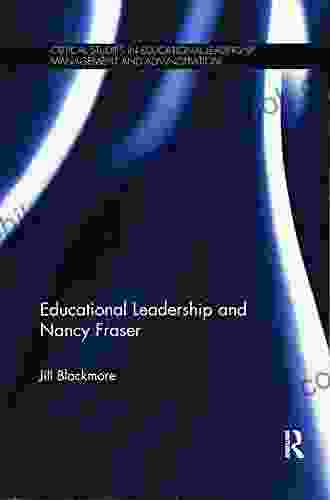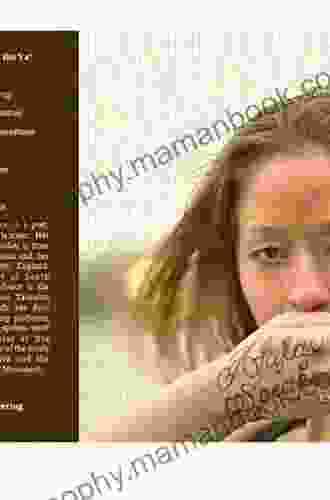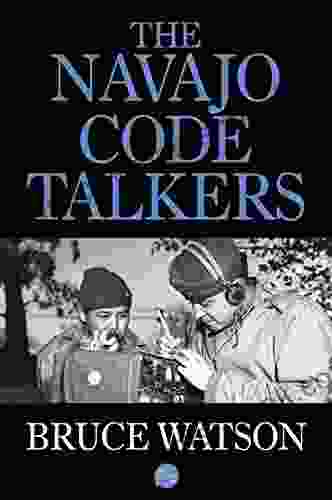Educational Leadership and Nancy Fraser's Critical Studies in Education: Exploring Intersectional Power Dynamics and Social Justice in Educational Contexts

Educational leadership plays a critical role in shaping the educational experiences of students and the overall functioning of educational institutions. To effectively address the complex challenges facing education today, educational leaders need to be equipped with a critical understanding of the social, political, and economic forces that shape educational systems. Nancy Fraser's critical theory of social justice provides a valuable framework for educational leaders to analyze and address issues of power, inequality, and exclusion in educational contexts.
Fraser's theory of social justice is based on the concept of intersectionality, which recognizes that individuals are subjected to multiple forms of oppression and discrimination based on their race, gender, class, sexual orientation, and other social identities. Fraser argues that social justice requires addressing both the material and cultural dimensions of oppression, and that social movements must work to transform both the economic and political systems that perpetuate inequality.
4.5 out of 5
| Language | : | English |
| File size | : | 382 KB |
| Text-to-Speech | : | Enabled |
| Screen Reader | : | Supported |
| Enhanced typesetting | : | Enabled |
| Word Wise | : | Enabled |
| Print length | : | 167 pages |
In the context of education, Fraser's theory can be used to analyze the ways in which educational systems perpetuate social inequality. For example, research has shown that students from marginalized backgrounds are more likely to be placed in low-performing schools, have access to fewer resources, and experience higher rates of discipline. Fraser's theory helps to explain these disparities by highlighting the ways in which educational systems are shaped by the same social and economic forces that perpetuate inequality in society as a whole.
Educational leaders can use Fraser's theory to develop more just and equitable educational systems. By understanding the ways in which educational systems perpetuate social inequality, educational leaders can work to create more inclusive and supportive learning environments for all students. They can also work to advocate for policies that address the root causes of educational inequality, such as poverty, racism, and sexism.
In addition to providing a framework for analyzing educational inequality, Fraser's theory can also be used to develop more effective educational leadership practices. By understanding the ways in which power and privilege operate in educational settings, educational leaders can work to create more democratic and collaborative school cultures. They can also work to empower teachers and students to challenge injustice and to create more just and equitable educational experiences.
Fraser's Theory of Social Justice and Educational Leadership
Fraser's theory of social justice is based on the following key concepts:
- Intersectionality: Fraser argues that individuals are subjected to multiple forms of oppression and discrimination based on their race, gender, class, sexual orientation, and other social identities. These forms of oppression are interconnected and mutually reinforcing, and they create a system of social hierarchy that benefits some groups at the expense of others.
- Material and Cultural Dimensions of Oppression: Fraser argues that social justice requires addressing both the material and cultural dimensions of oppression. Material oppression refers to the economic and political systems that perpetuate inequality, while cultural oppression refers to the ways in which dominant ideologies and cultural practices legitimize and reinforce social hierarchy.
- Social Movements: Fraser argues that social justice cannot be achieved without the work of social movements. Social movements are groups of people who come together to challenge injustice and to create a more just and equitable society.
Fraser's theory of social justice has been influential in a wide range of fields, including education. Educational researchers and practitioners have used Fraser's theory to analyze the ways in which educational systems perpetuate social inequality, and to develop more just and equitable educational practices.
Implications for Educational Leadership
Fraser's theory of social justice has a number of implications for educational leadership. First, it highlights the importance of understanding the ways in which power and privilege operate in educational settings. Educational leaders need to be aware of the ways in which their own social identities and experiences shape their perceptions and interactions with others. They also need to be aware of the ways in which educational systems perpetuate social inequality, and how these inequalities can affect the educational experiences of students.
Second, Fraser's theory emphasizes the importance of creating more democratic and collaborative school cultures. Educational leaders need to work to create school environments where all students feel valued and respected, and where they have opportunities to participate in decision-making. They also need to work to empower teachers and students to challenge injustice and to create more just and equitable educational experiences.
Third, Fraser's theory highlights the importance of advocating for policies that address the root causes of educational inequality. Educational leaders need to work to advocate for policies that address poverty, racism, and sexism, and that provide all students with access to high-quality educational opportunities.
By understanding and applying Fraser's theory of social justice, educational leaders can work to create more just and equitable educational systems for all students.
Nancy Fraser's critical theory of social justice provides a valuable framework for educational leaders to analyze and address issues of power, inequality, and exclusion in educational contexts. By understanding the ways in which educational systems
4.5 out of 5
| Language | : | English |
| File size | : | 382 KB |
| Text-to-Speech | : | Enabled |
| Screen Reader | : | Supported |
| Enhanced typesetting | : | Enabled |
| Word Wise | : | Enabled |
| Print length | : | 167 pages |
Do you want to contribute by writing guest posts on this blog?
Please contact us and send us a resume of previous articles that you have written.
 Top Book
Top Book Novel
Novel Fiction
Fiction Nonfiction
Nonfiction Literature
Literature Paperback
Paperback Hardcover
Hardcover E-book
E-book Audiobook
Audiobook Bestseller
Bestseller Classic
Classic Mystery
Mystery Thriller
Thriller Romance
Romance Fantasy
Fantasy Science Fiction
Science Fiction Biography
Biography Memoir
Memoir Autobiography
Autobiography Poetry
Poetry Drama
Drama Historical Fiction
Historical Fiction Self-help
Self-help Young Adult
Young Adult Childrens Books
Childrens Books Graphic Novel
Graphic Novel Anthology
Anthology Series
Series Encyclopedia
Encyclopedia Reference
Reference Guidebook
Guidebook Textbook
Textbook Workbook
Workbook Journal
Journal Diary
Diary Manuscript
Manuscript Folio
Folio Pulp Fiction
Pulp Fiction Short Stories
Short Stories Fairy Tales
Fairy Tales Fables
Fables Mythology
Mythology Philosophy
Philosophy Religion
Religion Spirituality
Spirituality Essays
Essays Critique
Critique Commentary
Commentary Glossary
Glossary Bibliography
Bibliography Index
Index Table of Contents
Table of Contents Preface
Preface Introduction
Introduction Foreword
Foreword Afterword
Afterword Appendices
Appendices Annotations
Annotations Footnotes
Footnotes Epilogue
Epilogue Prologue
Prologue Jenna Austin
Jenna Austin Ah Monayem
Ah Monayem Alberto Herrera Jefferson
Alberto Herrera Jefferson Dava Sobel
Dava Sobel Bobby D Lux
Bobby D Lux Agnes Hsu
Agnes Hsu William Bay
William Bay Nel Noddings
Nel Noddings Michael Saylor
Michael Saylor Lili Valente
Lili Valente Print Replica Kindle Edition
Print Replica Kindle Edition John Maeda
John Maeda Aj Newman
Aj Newman Aimie K Runyan
Aimie K Runyan Melanie Moreland
Melanie Moreland Victoria Steele
Victoria Steele Erin Paterson
Erin Paterson Michael F Fleming
Michael F Fleming S J A Turney
S J A Turney Karen Mathis
Karen Mathis
Light bulbAdvertise smarter! Our strategic ad space ensures maximum exposure. Reserve your spot today!
 Luke BlairFollow ·5.6k
Luke BlairFollow ·5.6k Fabian MitchellFollow ·10k
Fabian MitchellFollow ·10k Richard WrightFollow ·3.3k
Richard WrightFollow ·3.3k Raymond ParkerFollow ·4.9k
Raymond ParkerFollow ·4.9k Federico García LorcaFollow ·14.5k
Federico García LorcaFollow ·14.5k Jason ReedFollow ·15.4k
Jason ReedFollow ·15.4k Jonathan HayesFollow ·17.5k
Jonathan HayesFollow ·17.5k Herman MitchellFollow ·5.7k
Herman MitchellFollow ·5.7k

 Ignacio Hayes
Ignacio HayesShipwrecked For 13 Days On Coral Reef: A Tale of Survival...
In the vast expanse of the...

 Gerald Parker
Gerald ParkerWhere the World Is Quiet: Delving into a Realm of Serene...
A Tapestry of Serenity In the tapestry...

 Charles Bukowski
Charles BukowskiPloughshares Winter 2009: Guest Edited by Tony Hoagland
Ploughshares...

 Rubén Darío
Rubén DaríoAnthology of Massachusetts Poets: William Stanley...
William Stanley...

 Jason Hayes
Jason HayesSean Kenney's Mesmerizing Robot Masterpieces: A Journey...
In a realm where imagination meets...

 Terence Nelson
Terence NelsonUnveiling the Elite Force: The Commander Men of Hidden...
In the shadows of society, where justice...
4.5 out of 5
| Language | : | English |
| File size | : | 382 KB |
| Text-to-Speech | : | Enabled |
| Screen Reader | : | Supported |
| Enhanced typesetting | : | Enabled |
| Word Wise | : | Enabled |
| Print length | : | 167 pages |











